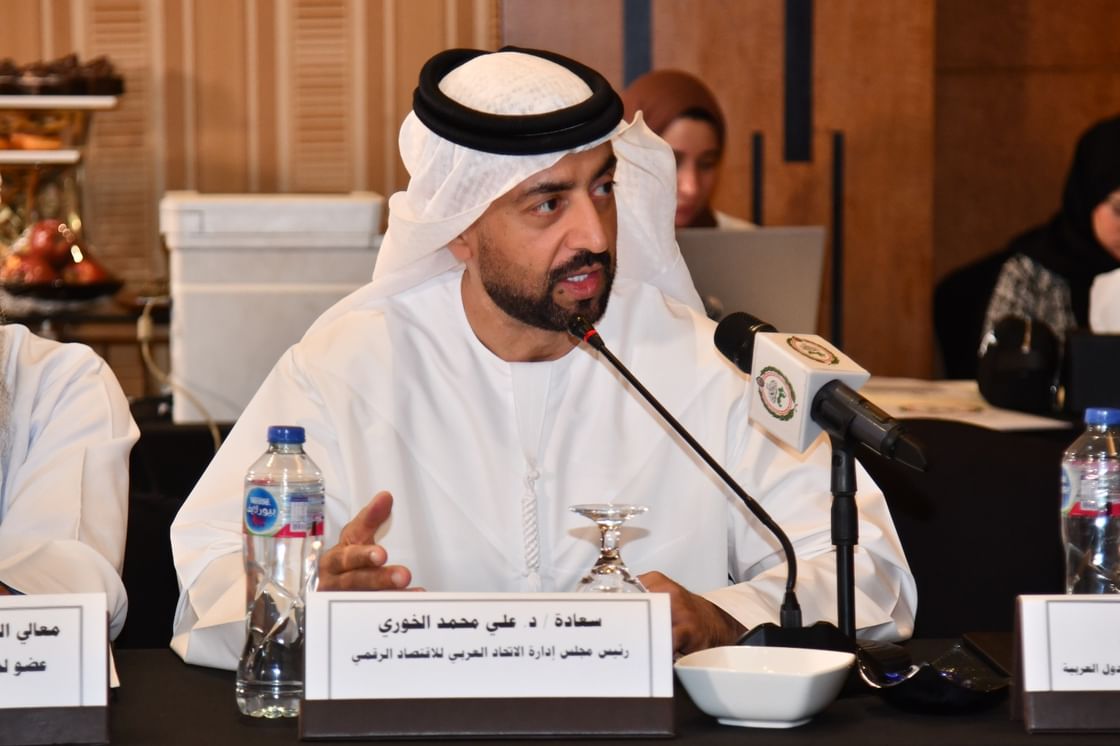Abu Dhabi
Mufakiru Alemarat
Prof. Dr. Ali Mohammed Al-Khouri
In the contemporary world, knowledge has become the hidden infrastructure through which global power maps are being reshaped. New political and economic equations are based on the fundamental premise that whoever possesses the ability to transform knowledge into economic value will simultaneously possess the tools of superiority and strategic influence.
Here, the concept of “soft power”—which refers to influence through ideas and norms—meets the thesis of “knowledge capitalism,” which considers status, legitimacy, and the ability to influence as capital no less important than technological or material capital. This shift places the world in an unprecedented race to produce and utilize knowledge, viewing it as a central enabling pillar in the architecture of power and sovereignty.
Figures confirm that countries’ race for knowledge is accelerating at an unprecedented pace. Global spending on research and development (R&D) reached nearly $2.75 trillion in 2023, according to the World Intellectual Property Organization. The share of R&D in global GDP has risen in many advanced economies to exceed 2%, with expectations that it will rise to 2.5% by 2030 if supportive policies continue at their current pace in emerging and advanced economies. These indicators demonstrate that knowledge, not traditional resources, will govern the economic and political future, and that the ability to transform ideas and innovations into products and services of economic value is the benchmark for global power.
In the Arab context, data reveals a growing momentum in some economies, particularly in the Gulf states, which have placed research and development at the heart of their development policies. In the UAE, spending on research and development rose to nearly $9 billion in 2023 (about 1.75% of its GDP), making it the country with the strongest Arab presence in international indicators related to innovation and competitiveness.

In contrast, Saudi Arabia represents a remarkable case in terms of its spending growth rate, with its allocations to research and development reaching approximately $6 billion in the same year, a 17.4% increase over 2022. Qatar also made progress in its global position, joining the UAE and Saudi Arabia among the top 50 countries in the Global Innovation Index.
These trends reflect the efforts of some Arab economies to diversify their sources of growth by opening up to technology and knowledge, and attempting to break their reliance on traditional economic models. However, the greatest challenge remains transforming these investments into integrated knowledge production systems capable not only of consuming imported technology, but also of producing solutions and innovations that are exportable and globally competitive.
Despite the remarkable progress in some Arab economies, the knowledge gap remains wide when compared to the global knowledge-producing centers. Immanuel Wallerstein, one of the most prominent theorists of international relations and political economy in the twentieth century, explains in his theory of “world order” that the world is divided into centers that generate ideas and technology, and peripheries that consume them. Based on this theory, while the entry of some Arab countries into the list of innovative nations is a positive indicator, the true value lies in their ability to narrow this gap and shift from consumption to production.
The reality reveals a fundamental challenge: the shortage of research talent. The average number of researchers in Arab countries does not exceed 650 researchers per million people, compared to more than 4,000 in the European Federation and over 7,000 in South Korea, according to UNESCO and World Bank data. This human resource gap exposes Arab economies to the risk of what can be called “knowledge dependency,” as they remain hostage to imported technology, regardless of their investment.

Hence, examining advanced international experiences becomes essential to understanding how scientific research was transformed from a limited activity into a strategic tool for building integrated systems. In East Asian countries, countries are building interconnected networks that bring together universities and industry in a closed innovation cycle and systematic policies to transform academic knowledge into commercial and industrial applications that support local growth and global expansion.
The European Federation countries, on the other hand, operate according to a different model based on what is known as the “enabling state.” The state does not intervene to crowd out the market, but rather acts as an intelligent regulator, setting frameworks and standards, directing investments toward strategic priorities, and developing vital sectors.

In the United States, companies bear approximately 80% of research and development spending, particularly in the development stages approaching commercial application. The federal government focuses on funding long-term research and formulates policies, laws, and scientific directions that the private sector later relies on, including renewable energy and space science research. State governments play a complementary role in funding research at the local level, supporting universities and laboratories, providing tax incentives, and building research and technology ecosystems that help startups transform ideas into practical applications that serve the needs of local and regional communities.
The lesson learned from international experience is that scientific research becomes a strategic force when it is integrated into a national project that reconnects knowledge with the economy and is managed as an infrastructure for sovereignty and the achievement of higher national goals.
While the research and development sector represents the primary infrastructure of the knowledge economy, the digital economy represents its most prominent application in economic activity and contemporary exchange patterns. Building advanced digital systems practically means transforming the outputs of research and innovation into tradable and expandable value.
The Gulf experience stands out as a tangible model. The UAE has set a goal of increasing the digital economy’s contribution to a quarter of GDP within a decade, while Saudi Arabia has already recorded approximately 15.6% of digital activities by 2023. Despite varying levels of progress, the broader picture in the Arab world reveals a growing awareness of the importance of digitization. Several countries have begun developing their digital infrastructure, expanding investments in the technology sector, and launching national initiatives aimed at creating competitive local innovation environments.
This shift signals a gradual transition from reliance on material rents derived from oil and natural resources to what might be termed “algorithmic rent,” where value is generated more from data and digital intelligence platforms than from traditional resources. However, critical theories in political economy warn that economies here may fall into the trap of “technological dependency,” remaining hostage to external intellectual property that restricts their sovereign choices. Large global corporations control the keys to knowledge unless they can produce their own local technologies.
Building a knowledge economy capable of withstanding global challenges can only be achieved through a comprehensive national vision that redefines and regulates the roles of the state, the market, and educational institutions. A knowledge economy cannot be achieved in fragmented environments or disparate policies, but rather requires an integrated system that places it at the core of the development project.
At the public policy level, governments are responsible for directing investments toward scientific research and innovation, and for opening the way for the private sector to become a key partner in knowledge production. This highlights the importance of supporting local solutions that can be expanded regionally and globally, transforming them into tradable economic value.
Universities, for their part, must transform from classrooms into knowledge-producing platforms that fuel industry with innovation and feed the economy with viable ideas. This also requires the development of bold financing tools aimed at supporting innovation in complex technical fields, enabling the transfer of ideas from laboratories to markets. Furthermore, it is imperative to develop an institutional structure for data management and governance, viewing it as a sovereign resource, as valuable as other vital resources, and serving as a source of increased productivity and economic superiority.

What is mentioned here are merely general guidelines that set the framework, without charting the full path. Current data and transformations present decision-makers and policymakers with questions and choices that will determine the criteria for economic independence, the foundations of knowledge sovereignty, and the limits of international competition. The future of development in the Arab world will remain dependent on the ability of governments to transform knowledge into a true driver of the economy and an effective tool for decision-making. Increasing allocations or building advanced digital infrastructure, while important, will not be sufficient unless causes are linked to outcomes and knowledge is leveraged within an integrated production system. The decisive factor here reveals that transforming knowledge into a strategic asset is a matter linked to protecting national and regional security, and the only means of accessing the invisible spaces that now hold the keys to the future.










